 Victorians and Australians need to initiate a new democratic process and hold to it. Residents' action groups now find themselves at the coal-face of democracy. They are the front line representing the future of our cities, states and this country. Their task is to identify, defend, and establish new property, community and natural environment rights and the implied citizens' rights that accompany these rights. We can no longer rely on the traditional environment NGOs or alternative political parties to represent us on these fundamental problems. They have been silenced by one means or another. Twenty years ago no-one would have contemplated making Planning Minister Mr Wynn's statements on drive-time ABC radio that we have to fit in 10 million more people in Victoria with four more million in Melbourne. This insane proposition is not the end of it by any means, either. Not only would Melbourne keep on growing, but most state governments are trying to force similar changes on their residents and the property development lobby has in the past admitted to the desire for something like 50 new mega cities around Australia, with eight new ones currently on the drawing board. The scale of these commercial projects will demand authoritarian regimes similar to China's. The looming privatisation of the planning system carries a danger of law suits from commercial developers against government, resident groups and private individuals if they try to object to any and all constructions. This paper proposes starting the new democratic process using the Planning Backlash Residents' Bill of Rights document and building on this. Victoria lacks any effective democratic process except state and council elections, but these elections give almost no rights to citizens and residents, renters or owners. This has to change or we will live in a property-developer-led dictatorship with our population completely replaced and displaced by constant massive construction and infrastructure projects, like those in China.
Victorians and Australians need to initiate a new democratic process and hold to it. Residents' action groups now find themselves at the coal-face of democracy. They are the front line representing the future of our cities, states and this country. Their task is to identify, defend, and establish new property, community and natural environment rights and the implied citizens' rights that accompany these rights. We can no longer rely on the traditional environment NGOs or alternative political parties to represent us on these fundamental problems. They have been silenced by one means or another. Twenty years ago no-one would have contemplated making Planning Minister Mr Wynn's statements on drive-time ABC radio that we have to fit in 10 million more people in Victoria with four more million in Melbourne. This insane proposition is not the end of it by any means, either. Not only would Melbourne keep on growing, but most state governments are trying to force similar changes on their residents and the property development lobby has in the past admitted to the desire for something like 50 new mega cities around Australia, with eight new ones currently on the drawing board. The scale of these commercial projects will demand authoritarian regimes similar to China's. The looming privatisation of the planning system carries a danger of law suits from commercial developers against government, resident groups and private individuals if they try to object to any and all constructions. This paper proposes starting the new democratic process using the Planning Backlash Residents' Bill of Rights document and building on this. Victoria lacks any effective democratic process except state and council elections, but these elections give almost no rights to citizens and residents, renters or owners. This has to change or we will live in a property-developer-led dictatorship with our population completely replaced and displaced by constant massive construction and infrastructure projects, like those in China.
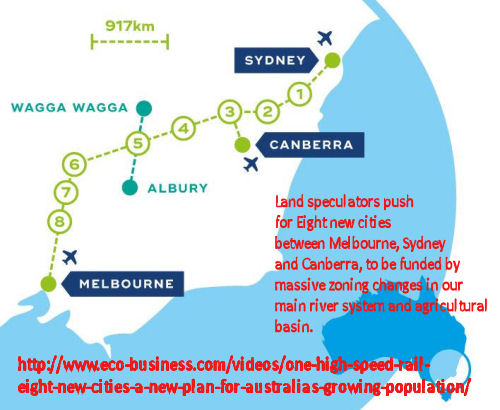
Setting a new process in motion with or after the Planning Backlash protest of 8 June
Groups currently trying to peacefully prevent the erosion of residents' rights by government instigated overpopulation and overdevelopment need to take more formally constructive initiatives. So far they have been reactive rather than proactive, responding to media reports with letters to the editor, responding to government inquiries by making submissions, responding to law bills by writing letters to members of parliament and the three main political parties, responding to development notices by writing objections and taking these to VCAT, and, in many instances, protesting on the steps of the Victorian Parliament. Whilst all these methods are honorable and traditional, they are reactive and piecemeal, do not notify the wider civilian population or representatives, authorities and administrators at all levels of government, and their demands and processes are inadequate in the face of the massive changes to our way of life that are being brought about by related policies at the level of Federal, Victorian and other state government. [1]
Sleepwalking towards the catastrophe of Victoria at 10m and beyond
When we hear the Minister for Planning, Mr Wynn, on drivetime radio, insist that Melbourne and Victoria will have to fit in something like 10 million people - about half Australia's current population by 2050 – then we need to take the matter beyond a very limited talk-back opportunity or 'have your say' submissions. When we hear from Planning Backlash that the Victorian Government is letting a tender for the private sector to rewrite the entire Victorian planning system in what amounts to a transfer of its planning powers, in the context of a continuously increasing scale of projected population growth, and the consequent over-riding of residents' rights, then these Planning Backlash resident groups need to notify authorities and administrators at all levels of government of their concerns in a formal objection to the entire policy of mass economic immigration and elevation of the property development industry to a quasi-authority. Note also the danger that planning system privatisation will muzzle debate through loss-of-profit legal suits against government and private individuals who object to any construction, in the vein promised by the Trans Pacific Partnership and other global agreements.
Twenty years ago no-one would have contemplated making Mr Wynn's statements. The insane proposition of four or six million more people for Melbourne is not the end of it by any means, either. Not only would Melbourne keep on growing, but most state governments are trying to force similar changes on their residents and the property development lobby has in the past admitted to the desire for something like 50 new mega cities around Australia, with eight new ones currently on the drawing board.[2] Such a massive rate of population growth and infrastructure development would require fundamental changes to the way Australian governments, courts, police and defense forces relate to citizens and residents because it would completely upset current land-use and land-tenure, with massive displacement of citizens and residents. For this reason the police and defense forces also need to be included in the notification and asked for feedback regarding the likely impact of this huge project of expansion.
Residents' action groups now at coalface of democracy
In face of the bank-backed and political party-backed army of bulldozers and planning bureaucrats Australians may soon face, residents' action groups now find themselves at the coal-face of democracy. They are the front line representing the future of their cities, states and this country. Their task is to identify, defend, and establish new property, community and natural environment rights and the implied citizens' rights that accompany these rights.
What do you do after the protest? Planning Backlash Residents' Bill of Rights.
Organised protests in public places are fine as a preliminary action, but we need to establish a more effective and long-term process with a body of documents to which we can refer again and again and use to negotiate new laws and rights. Planning Backlash has a fine beginning document, the Planning Backlash Residents' Bill of Rights. (See next page.) The document is not yet perfect, but is the only one of its kind. It lacks points on natural environment and wildlife and on public housing rights, but these could be included. It has an internal inconsistency by proposing regional development as a substitute for further densification of Melbourne suburbs, but its other demands – that population growth be slowed down to an OECD average and that infrastructure be provided in advance – are protective against this.
Notification of Concerns and initiation of new democratic process
There needs to be a Notification of Concerns document with an introduction about the situation, followed by the Planning Backlash Residents' Bill of Rights, which is a document of concrete demands which would establish and enlarge our democratic rights. Those who find this pro-active view of rights hard to imagine might consider the Magna Carta as an example of an historic document that forged rights where no-one had believed this possible. [3] The document needs to be signed by resident and other organisations (such as member organisations of Protectors of Public Land) to give it weight and to avoid stigmatising individual activists. These local and widely connected organisations are the most representative we have on property and democratic rights at the moment. There would be one address for replies, which should be made public. It could then be sent far and wide by mail or by email, but notably to the authorities and organisations that use, enforce, discuss and interpret the law (the judiciary, councils and councillors, police, army, political party branches, etc,). The demands for rights needs to be signed by enough credible organisations to make it a serious claim. Some of the organisations and authorities notified with the document would have to respond because, in effect, citizens will be saying that they think what the government is doing is contrary to fundamental property rights and expected government obligations to citizens. Hopefully some individuals in the organisations addressed would also find common concern with other concerned citizens.
NOTES
[1] Australians have a right to try in good faith to show that any of the following persons are mistaken in any of his or her counsels, policies or actions: The Sovereign, the Governor-General, the Governor of a State, the Administrator of a Territory, an adviser of any of the above, as well as to point out in good faith errors or defects, with view to their reform: the Government of the Commonwealth, a State or a Territory; the Constitution; legislation of the Commonwealth, a State, a Territory or another country; or to urge in good faith another person to attempt to lawfully procure a change to any matter established by law, policy or practice in the Commonwealth, a State, a Territory or another country. You may point out in good faith any matters that are producing, or have a tendency to produce, feelings of ill will or hostility between different groups, in order to bring about the removal of those matters; or do anything in good faith in connection with an industrial dispute or an industrial matter; or publish in good faith a report or commentary about a matter of public interest. These rights are set out as 'in good faith' defenses in the Australian Criminal Code Act 1995, section 80.3.[1]
[2]This number, along with the desire for a population of 250m, has not been overtly stated in public documents but you can get the flavour of it in property council proposals like thishttp://www.eco-business.com/videos/one-high-speed-rail-eight-new-cities-a-new-plan-for-australias-growing-population/ (See illustration below) and you can infer it from the Department of Primeminister and Cabinet's "Smart which talks of "Publishing details of the regional City Deal competitive bid process to be used in the selection of City Deals outside Australian cities" at https://cities.dpmc.gov.au/smart-cities-plan and for which you can download the elaborations here: https://cities.dpmc.gov.au/18190/documents/48080
[3] Although the Magna Carta was a demand made by a group of Lords, the principle is the same, but the groups represented are larger and more social-contractually formed. In 1789 in France the National Assembly was peacefully obtained from the king by the common people, arguing their rights via delegates. (The king later went against this document and set his foreign troops on the people of Paris, sparking off a violent revolution, which many people erroneously think was actually started by the people.)
Residents' Bill of Rights
We, the current residents of Melbourne, country and coastal areas of Victoria, call on the government and opposition at all levels to act to protect our homes, communities and cities from over-development.
WE REJECT:
The current trend of excessive population growth through the ever increasing levels of immigration.
The excessive influence of vested interests and lobby groups upon residential planning and government decision making.
The increasing densification of residential areas and the consequent impact on our infrastructure without commensurate infrastructure upgrades at all levels.
The continual changes to planning law and regulations that provides no certainty for the peaceful enjoyment of our neighbourhoods by the current and future residents.
The continual urban sprawl into Melbourne’s green fringe and farming land.
We DEMAND:
• Population growth targets to be limited to sustainable levels based on OECD averages which is currently around 0.63%. (Australia’s rate of growth is currently around 1.7% ).
• Infrastructure be upgraded to meet current needs and kept ahead of requirements to meet our cities population growth requirements.
• A bipartisan planning environment that provides certainty and protects residential areas against densification in any form.
• Councils to be the sole “responsible Authority” for issuing planning permits and building permits.
• VCAT’s role to be confined to resolution of legal planning disputes and ensuring that lawful planning regulations are met.
• FIRB rules and penalties designed and strictly applied to prevent destruction of existing housing stock and neighbourhood character by foreign nationals.
• Expansion and development of regional cities and associated infrastructure to support population growth and lifestyle quality.
• Developer donations be deemed illegal with mandatory disqualification, forfeiture, or dismissal from or of any current or future development.
• Protection of current open space and tree canopy with requirement to retain or replace vegetation on all new or redevelopment sites.
• Government, at all levels, legally required to assess and protect the interests of residents ahead of developers’ interests.
• All planning committees and reference groups must have at reasonable resident representation.
• Legislate to ensure permits can be refused where a poll of residents/owners living within 300m radius of the proposed development indicates objection by the majority of existing residents/owners.
• A national uniform code be developed to define minimum dwelling size, minimum open space per bedroom and maximum occupancy limits.
• Enforceable minimum Victorian building standards regulations administered by an independent authority.
• Any breach of a planning permit or building standards should result in a prosecution by the relevant authority or the State or local Government to ensure proper rectification
• Developers to meet infrastructure costs necessary for new developments including drainage, sewage, water supply, telecommunications, gas and electricity.
• Developers to be required to contribute to a general community/Council infrastructure fund, , based on number of bedrooms or estimated improved value of the property.
• Neighbourhood character, architecture and heritage requirements to be met by every new residential development.
• Establishment and enforcement of resident and visitor car parking standards, for new multi-dwelling developments, at the rate of 0.75 spaces per bedroom, for residents and 0.25 spaces for visitors.
• Character protection for heritage and traditional local shopping strips.
[This bill was] Published & authorized by PLANNING BACKLASH, on behalf of it’s 250
supporting residents' groups in Melbourne, country & coastal areas.
PO Box 1034 Camberwell, Vic. 3124
 The meeting showed huge community concern over our deteriorating living conditions and what the future holds. There are many community groups with detailed knowledge of the mechanisms and laws around what is happening in their various specific trouble spots. These people are community-minded, dedicated, and well informed.
The meeting showed huge community concern over our deteriorating living conditions and what the future holds. There are many community groups with detailed knowledge of the mechanisms and laws around what is happening in their various specific trouble spots. These people are community-minded, dedicated, and well informed.
 The draft Yarra Strategic Plan claims to deliver the first Victorian integrated river corridor strategy and to identify immediate actions for the river corridor, enabling long-term collaborative management between agencies and Traditional Owners. It is intended to guide local planning. We publish here a critical submission to this draft plan. Summary of submission by candobetter editor: Climate Change and human failure to interact safely with the natural world. Plan fails to adequately factor in transport interaction with Yarra. Lack of proper transport interconnectivity. Higher density depends on high quality public transport. Private car still dominates. Forecast population growth and new constructions will inevitably cause major environmental damage. North-East Link Freeway will comport massive land-fill problems, hardly referred to in Draft Plan. Likely potential for destabilisation of groundwater in the Yarra Valley in the Bulleen and Rosanna area as a consequence of the North-East Link Freeway project. Substantial areas of public open space is threatened by the project, together with about 25,000 mature canopy trees. Adverse human health effects of the project would include increased air pollution and heightened road noise. Lack of cycling provision on roads in cities of Boroondara, Banyule, Manningham and Maroondah and the Shires of Nillumbik and Yarra Ranges. Proposal in Plan to increase lanes capacity on the Eastern Freeway to cater for the North East Link project by over 40%, from 802,000 square metres to 1,127,000 square metres. Adverse environmental effects would include increased run-off of polluted stormwater into the Yarra River and elevated ambient temperatures as a consequence of the large increase in concrete and asphalt surfaces. Report of the Commissioner of Sustainability, State of the Yarra and its Parklands (2018), concluded that the status of the Yarra river was poor for 18 of its 25 environmental indicators. This can only deteriorate if planned stressors go ahead.
The draft Yarra Strategic Plan claims to deliver the first Victorian integrated river corridor strategy and to identify immediate actions for the river corridor, enabling long-term collaborative management between agencies and Traditional Owners. It is intended to guide local planning. We publish here a critical submission to this draft plan. Summary of submission by candobetter editor: Climate Change and human failure to interact safely with the natural world. Plan fails to adequately factor in transport interaction with Yarra. Lack of proper transport interconnectivity. Higher density depends on high quality public transport. Private car still dominates. Forecast population growth and new constructions will inevitably cause major environmental damage. North-East Link Freeway will comport massive land-fill problems, hardly referred to in Draft Plan. Likely potential for destabilisation of groundwater in the Yarra Valley in the Bulleen and Rosanna area as a consequence of the North-East Link Freeway project. Substantial areas of public open space is threatened by the project, together with about 25,000 mature canopy trees. Adverse human health effects of the project would include increased air pollution and heightened road noise. Lack of cycling provision on roads in cities of Boroondara, Banyule, Manningham and Maroondah and the Shires of Nillumbik and Yarra Ranges. Proposal in Plan to increase lanes capacity on the Eastern Freeway to cater for the North East Link project by over 40%, from 802,000 square metres to 1,127,000 square metres. Adverse environmental effects would include increased run-off of polluted stormwater into the Yarra River and elevated ambient temperatures as a consequence of the large increase in concrete and asphalt surfaces. Report of the Commissioner of Sustainability, State of the Yarra and its Parklands (2018), concluded that the status of the Yarra river was poor for 18 of its 25 environmental indicators. This can only deteriorate if planned stressors go ahead.
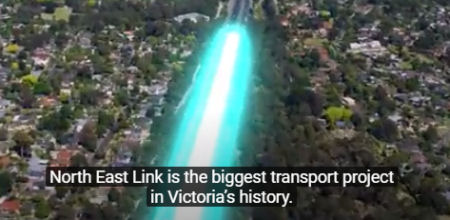

 Rapid population growth has impacted heavily on private and public open space in Melbourne, especially over the last decade. Clifford will discuss some individual case studies and his Private Members' Bill to reintroduce local democracy into Victoria's planning law. Hear him at the Protectors of Public Lands AGM Saturday October 26th, 2019, 2.30pm. Flemington Community Centre, 25 Mt. Alexander Road, Flemington. All welcome!
Rapid population growth has impacted heavily on private and public open space in Melbourne, especially over the last decade. Clifford will discuss some individual case studies and his Private Members' Bill to reintroduce local democracy into Victoria's planning law. Hear him at the Protectors of Public Lands AGM Saturday October 26th, 2019, 2.30pm. Flemington Community Centre, 25 Mt. Alexander Road, Flemington. All welcome!
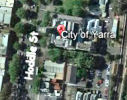 Hoddle Street is a very long road in Melbourne, Victoria. Congestion in Melbourne is reaching ludicrous and unforgivable proportions. The treelined part of Hoddle Street is apparently being sacrificed without public consultation for the no-win race of government-engineered population growth.
Hoddle Street is a very long road in Melbourne, Victoria. Congestion in Melbourne is reaching ludicrous and unforgivable proportions. The treelined part of Hoddle Street is apparently being sacrificed without public consultation for the no-win race of government-engineered population growth.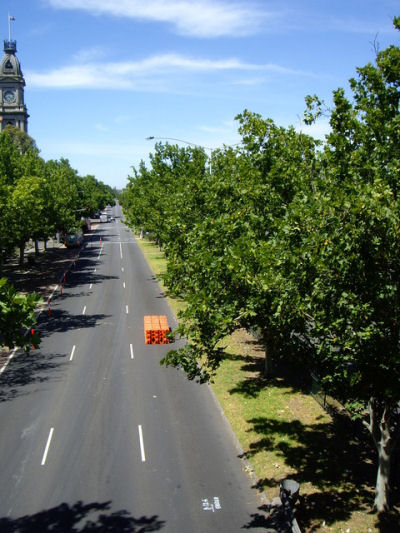
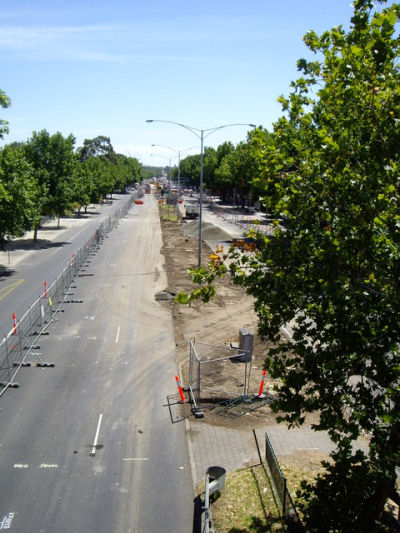
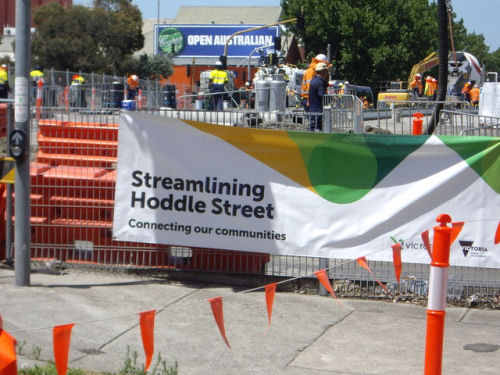
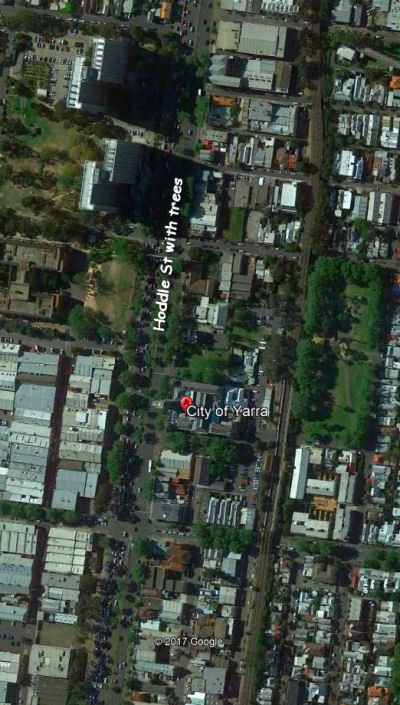
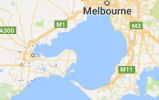 On 30 October 2017, Port Phillip Bay Keeper, Mr Neil Blake and Mr Jay Gleeson, AGL Community Relations Manager, Strategic Projects, will be speakers at the Annual General Meeting of Port Phillip Conservation Council, Inc. Mr Neil Blake’s talk 'From the back blocks to the Bay' discusses likely threats to the Bay from population growth, urban consolidation and climate change. He will also give an update on his Bay Keeper citizen science initiatives promoting community stewardship of our waterways – including his project recording recent changes to beach profiles and erosion around the Bay. Mr Jay Gleeson's talk will involve a presentation on AGL’s assessment of options for shipping Liquefied Natural Gas (LNG) from interstate and overseas, receiving it at an import jetty and injecting it into the pipeline transportation system for supply to south-eastern Australia. After assessing sites around Australia, Crib Point in Westernport Bay has been identified as AGL’s preferred option. Mr. Gleeson will give an outline of AGL’S Import Jetty Project and implications for Westernport Bay and Crib Point, and will take questions from the audience. For background to the LNG project see: www.engageagl.com.au. Time: 7pm 30 October 2017 Venue: Longbeach Place - Chelsea Community Centre, 15 Chelsea Rd., Chelsea.
On 30 October 2017, Port Phillip Bay Keeper, Mr Neil Blake and Mr Jay Gleeson, AGL Community Relations Manager, Strategic Projects, will be speakers at the Annual General Meeting of Port Phillip Conservation Council, Inc. Mr Neil Blake’s talk 'From the back blocks to the Bay' discusses likely threats to the Bay from population growth, urban consolidation and climate change. He will also give an update on his Bay Keeper citizen science initiatives promoting community stewardship of our waterways – including his project recording recent changes to beach profiles and erosion around the Bay. Mr Jay Gleeson's talk will involve a presentation on AGL’s assessment of options for shipping Liquefied Natural Gas (LNG) from interstate and overseas, receiving it at an import jetty and injecting it into the pipeline transportation system for supply to south-eastern Australia. After assessing sites around Australia, Crib Point in Westernport Bay has been identified as AGL’s preferred option. Mr. Gleeson will give an outline of AGL’S Import Jetty Project and implications for Westernport Bay and Crib Point, and will take questions from the audience. For background to the LNG project see: www.engageagl.com.au. Time: 7pm 30 October 2017 Venue: Longbeach Place - Chelsea Community Centre, 15 Chelsea Rd., Chelsea.  The other day I retrieved a brochure with an illustration like this from my letter box. It was imploring me to take up residence in newly built apartments quite close to where I live. I guess that decor was supposed to sell the sterile looking place to me.
The other day I retrieved a brochure with an illustration like this from my letter box. It was imploring me to take up residence in newly built apartments quite close to where I live. I guess that decor was supposed to sell the sterile looking place to me. 


 There is his huge gap between what the people want and what politicians and their masters want.
There is his huge gap between what the people want and what politicians and their masters want. (Cartoon by Jill Quirk.)
(Cartoon by Jill Quirk.) The convenor was Richard Della Riva who just sat there and looked bored. His electoral office is in Vermont, so he would not know too many people in MacLeod.
The convenor was Richard Della Riva who just sat there and looked bored. His electoral office is in Vermont, so he would not know too many people in MacLeod.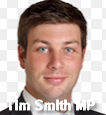 Tim Smith was then hammered by the rest who all complained each in their own way about the population growth, some gave mini-speeches from their seats. He used the excuse – not convincingly - that many of these questions were of a federal nature, again and again he asked people to make a written submission. You can make one at
Tim Smith was then hammered by the rest who all complained each in their own way about the population growth, some gave mini-speeches from their seats. He used the excuse – not convincingly - that many of these questions were of a federal nature, again and again he asked people to make a written submission. You can make one at 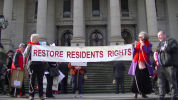 The Minister for Planning has publicly insisted [1] that Victoria has to fit 10 million people in Victoria with four more million in Melbourne and that that is the reason for the planning dictatorship he is trying to force on Victorians. If we did not 'have' to fit in millions more, no new plan would be 'needed'. Population numbers as a topic dominate the mainstream press,[2] but three residents' action groups in Planning Backlash - possibly trading on their marginal electorate status - reportedly held the rest to ransom for their presence at the Planning Backlash rally on the steps of parliament 8 June 2017. Their ransom was censorship of their fellow groups in a promise that no rally speakers would mention the role that population growth has in driving Plan Melbourne 2017-2050 and all the destruction it promises. Even though the Victorian Government has openly published several written policies for massive population growth, [3] the Yarra Residents' Coalition, Brunswick and Moreland groups of Planning Backlash have been identified as censoring debate about this on the very steps of Victoria's parliament.
The Minister for Planning has publicly insisted [1] that Victoria has to fit 10 million people in Victoria with four more million in Melbourne and that that is the reason for the planning dictatorship he is trying to force on Victorians. If we did not 'have' to fit in millions more, no new plan would be 'needed'. Population numbers as a topic dominate the mainstream press,[2] but three residents' action groups in Planning Backlash - possibly trading on their marginal electorate status - reportedly held the rest to ransom for their presence at the Planning Backlash rally on the steps of parliament 8 June 2017. Their ransom was censorship of their fellow groups in a promise that no rally speakers would mention the role that population growth has in driving Plan Melbourne 2017-2050 and all the destruction it promises. Even though the Victorian Government has openly published several written policies for massive population growth, [3] the Yarra Residents' Coalition, Brunswick and Moreland groups of Planning Backlash have been identified as censoring debate about this on the very steps of Victoria's parliament. Victorians and Australians need to initiate a new democratic process and hold to it. Residents' action groups now find themselves at the coal-face of democracy. They are the front line representing the future of our cities, states and this country. Their task is to identify, defend, and establish new property, community and natural environment rights and the implied citizens' rights that accompany these rights. We can no longer rely on the traditional environment NGOs or alternative political parties to represent us on these fundamental problems. They have been silenced by one means or another. Twenty years ago no-one would have contemplated making Planning Minister Mr Wynn's statements on drive-time ABC radio that we have to fit in 10 million more people in Victoria with four more million in Melbourne. This insane proposition is not the end of it by any means, either. Not only would Melbourne keep on growing, but most state governments are trying to force similar changes on their residents and the property development lobby has in the past admitted to the desire for something like 50 new mega cities around Australia, with eight new ones currently on the drawing board. The scale of these commercial projects will demand authoritarian regimes similar to China's. The
Victorians and Australians need to initiate a new democratic process and hold to it. Residents' action groups now find themselves at the coal-face of democracy. They are the front line representing the future of our cities, states and this country. Their task is to identify, defend, and establish new property, community and natural environment rights and the implied citizens' rights that accompany these rights. We can no longer rely on the traditional environment NGOs or alternative political parties to represent us on these fundamental problems. They have been silenced by one means or another. Twenty years ago no-one would have contemplated making Planning Minister Mr Wynn's statements on drive-time ABC radio that we have to fit in 10 million more people in Victoria with four more million in Melbourne. This insane proposition is not the end of it by any means, either. Not only would Melbourne keep on growing, but most state governments are trying to force similar changes on their residents and the property development lobby has in the past admitted to the desire for something like 50 new mega cities around Australia, with eight new ones currently on the drawing board. The scale of these commercial projects will demand authoritarian regimes similar to China's. The 
 3CR talkS to Michael Bayliss from Planning Backlash about the development woes facing Melbourne and how this issue will only become more serious in light of plans to further deregulate the planning system. Whether it is increasing densities in the inner suburbs or developing the urban fringe, we are not getting the standard of development that Melbourne requires as we proceed to a low carbon economy. (Article adapted from one published on 3CR at
3CR talkS to Michael Bayliss from Planning Backlash about the development woes facing Melbourne and how this issue will only become more serious in light of plans to further deregulate the planning system. Whether it is increasing densities in the inner suburbs or developing the urban fringe, we are not getting the standard of development that Melbourne requires as we proceed to a low carbon economy. (Article adapted from one published on 3CR at  Anyone that lives in Sydney or Melbourne will have experienced the crippling rise in congestion on our transport networks first hand. Morning and evening peaks now run for hours, traffic is forever thick on the weekends, and the time taken to travel from point A to point B now takes longer than ever. Article originally published at
Anyone that lives in Sydney or Melbourne will have experienced the crippling rise in congestion on our transport networks first hand. Morning and evening peaks now run for hours, traffic is forever thick on the weekends, and the time taken to travel from point A to point B now takes longer than ever. Article originally published at 

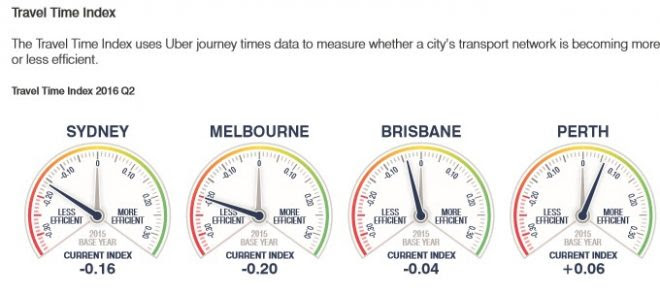
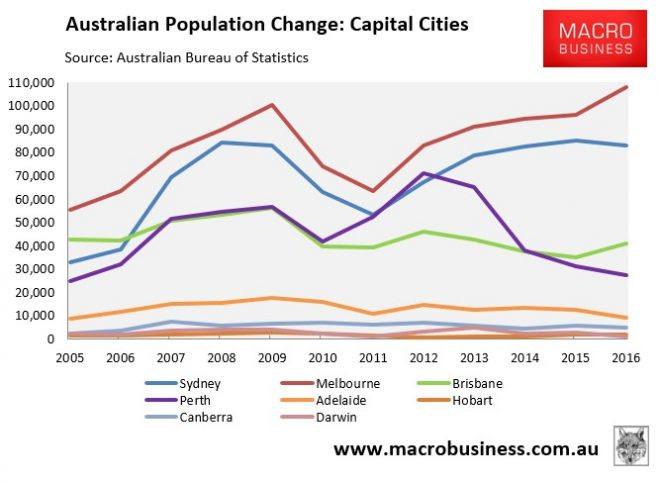
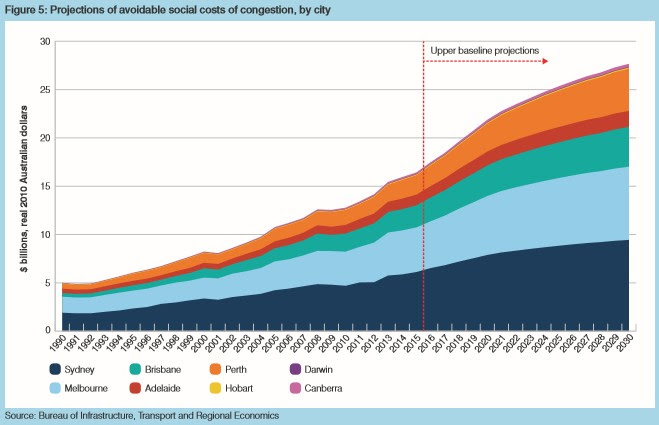
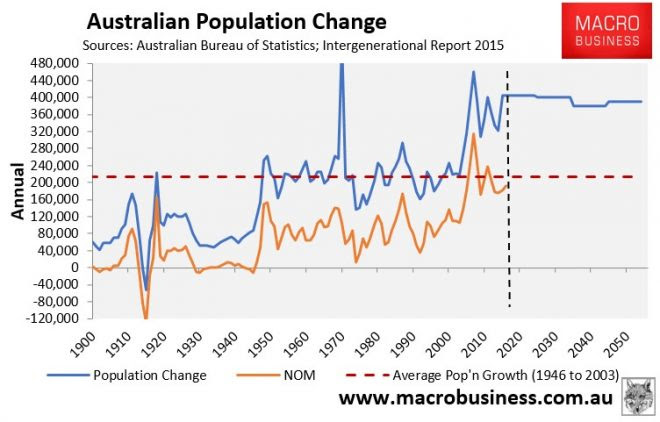

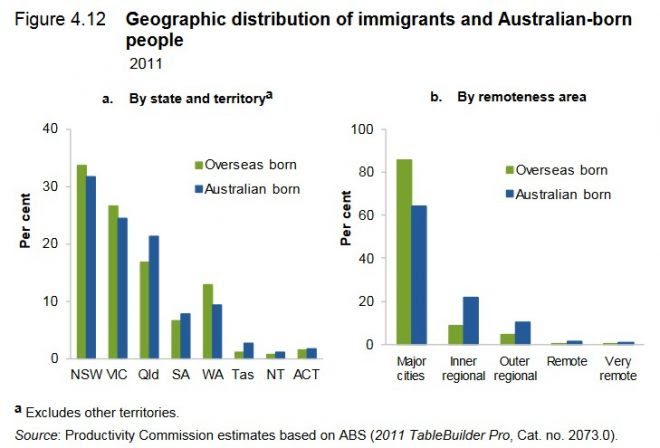

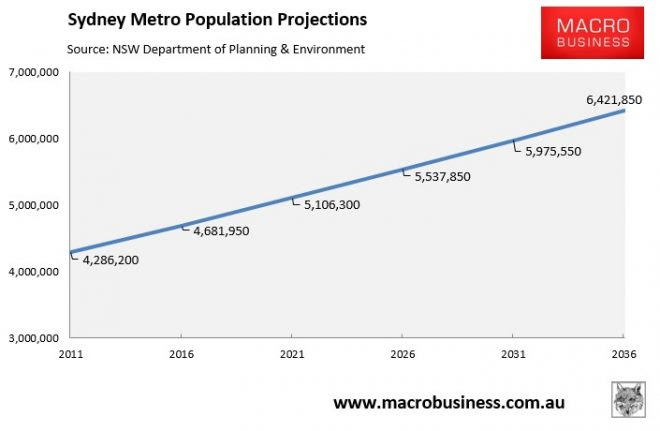
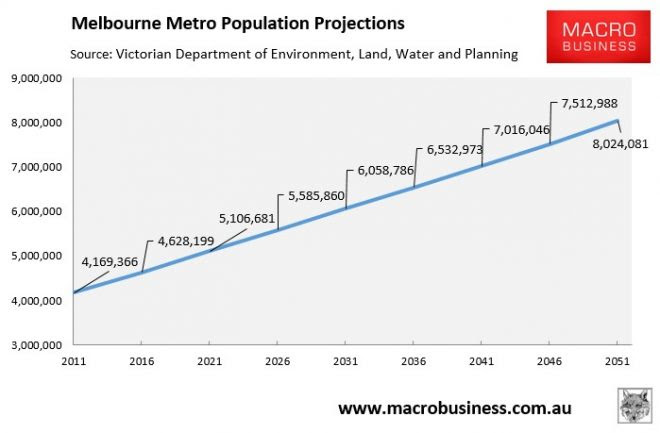
 Stop Press - Just received this minute. It seems that Josh Frydenberg, Federal member for Boroondara and Minister of Environment, has put an interim protection order on St Kilda Road, as it has been sponsored for National Heritage Protection. I knew this has been proposed by a leader of the Liberals and a leader of Labor. A number of us wrote to Josh urging him to do it. Great news!
Stop Press - Just received this minute. It seems that Josh Frydenberg, Federal member for Boroondara and Minister of Environment, has put an interim protection order on St Kilda Road, as it has been sponsored for National Heritage Protection. I knew this has been proposed by a leader of the Liberals and a leader of Labor. A number of us wrote to Josh urging him to do it. Great news!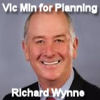

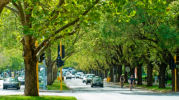 (Submission inside) Plans for the proposed underground railway from north west to south east of the city are not yet finalised. On Friday the 13th the Minister of Planning said the location of the proposed Domain station may be moved and yet the Age announces 14th Jan that work would begin on Monday the 16th. This is clearly vandalism. They are going to start destroying trees and moving gas and sewer lines at the Domain. Remember that St Kilda Road is heritage listed and Heritage Victoria have received thousands of objections and Heritage Vic have not yet made a determination. One has to wonder how much pressure they are under by this State Government in their determination to start digging. We are sick to death of hearing them say they are 'shovel-ready'. How dare the government say that the damage to St Kilda road will be worth it for the advantage the rail will give. The necessity for this rail is being questioned by respected planners in Melbourne. There are far more important road and rail projects that are needed first.
(Submission inside) Plans for the proposed underground railway from north west to south east of the city are not yet finalised. On Friday the 13th the Minister of Planning said the location of the proposed Domain station may be moved and yet the Age announces 14th Jan that work would begin on Monday the 16th. This is clearly vandalism. They are going to start destroying trees and moving gas and sewer lines at the Domain. Remember that St Kilda Road is heritage listed and Heritage Victoria have received thousands of objections and Heritage Vic have not yet made a determination. One has to wonder how much pressure they are under by this State Government in their determination to start digging. We are sick to death of hearing them say they are 'shovel-ready'. How dare the government say that the damage to St Kilda road will be worth it for the advantage the rail will give. The necessity for this rail is being questioned by respected planners in Melbourne. There are far more important road and rail projects that are needed first. 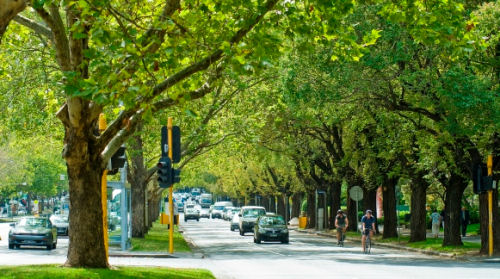
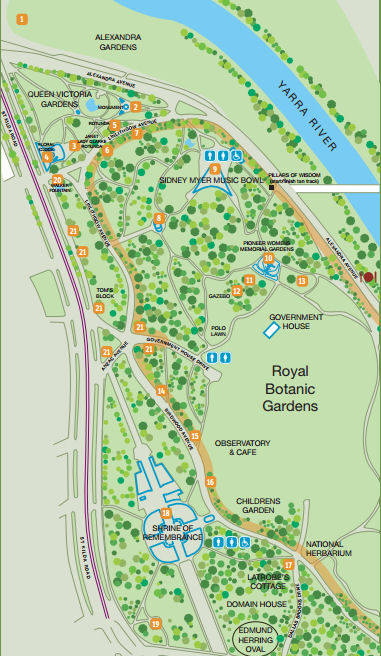

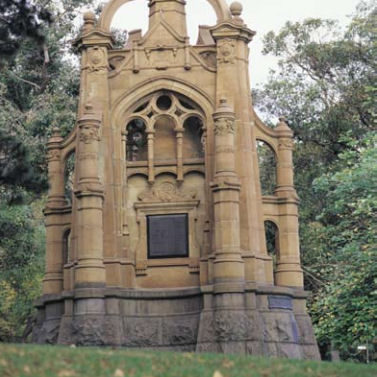
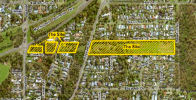 This week Craig Thomson, President of the Australian Wildlife Protection Council, is working on a submission to oppose the rezoning of Melbourne Water land in Rosebud South. Unfortunately he has run into problems getting appropriate ecological information about the site. He wonders if the State Government and Melbourne water have deliberately made the ecological report unavailable. The fauna report relies solely on a habitat assessment and a desktop study for threatened species.
This week Craig Thomson, President of the Australian Wildlife Protection Council, is working on a submission to oppose the rezoning of Melbourne Water land in Rosebud South. Unfortunately he has run into problems getting appropriate ecological information about the site. He wonders if the State Government and Melbourne water have deliberately made the ecological report unavailable. The fauna report relies solely on a habitat assessment and a desktop study for threatened species.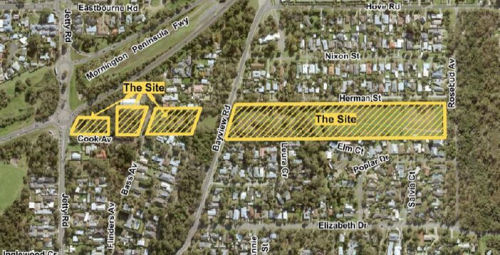
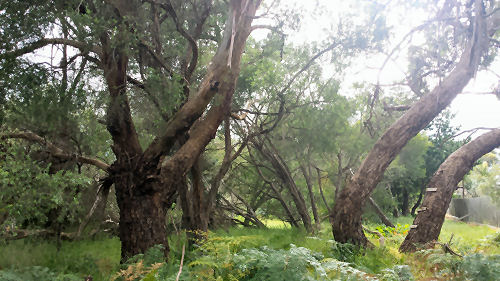
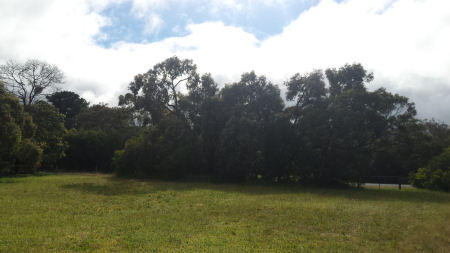
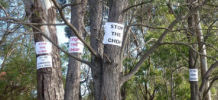 Greens Councillors Amanda Stone, Sam Gaylard and Misha Coleman voted together with Councillors Stephen Jolly and Jackie Fristacky to give the go ahead to run a cycle path through a natural reserve. Trees will be felled. This was not a foregone result, since the decision was carried only by one in a 5:4 vote. The Greens obviously had a choice, but seem to have chosen to put transport ahead of nature in a very overcrowded area with little access to natural surroundings. This lack of interest in protecting the natural world and our access to it from overdevelopment seems to be an increasing feature of the Greens, particularly to the North of the Yarra.
Greens Councillors Amanda Stone, Sam Gaylard and Misha Coleman voted together with Councillors Stephen Jolly and Jackie Fristacky to give the go ahead to run a cycle path through a natural reserve. Trees will be felled. This was not a foregone result, since the decision was carried only by one in a 5:4 vote. The Greens obviously had a choice, but seem to have chosen to put transport ahead of nature in a very overcrowded area with little access to natural surroundings. This lack of interest in protecting the natural world and our access to it from overdevelopment seems to be an increasing feature of the Greens, particularly to the North of the Yarra. 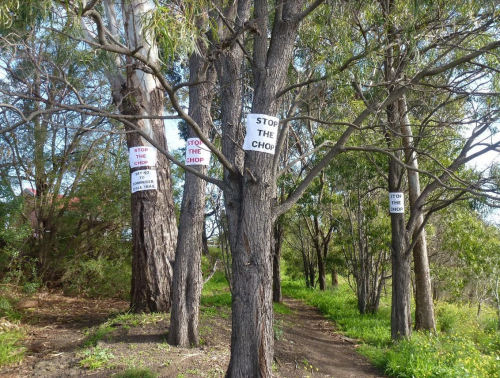
 This article is about the real reason why the medicare rebates don't cover the cost of doctors' services and therefore why the practice of general medicine is increasingly unsatisfactory for doctors and patients.
This article is about the real reason why the medicare rebates don't cover the cost of doctors' services and therefore why the practice of general medicine is increasingly unsatisfactory for doctors and patients.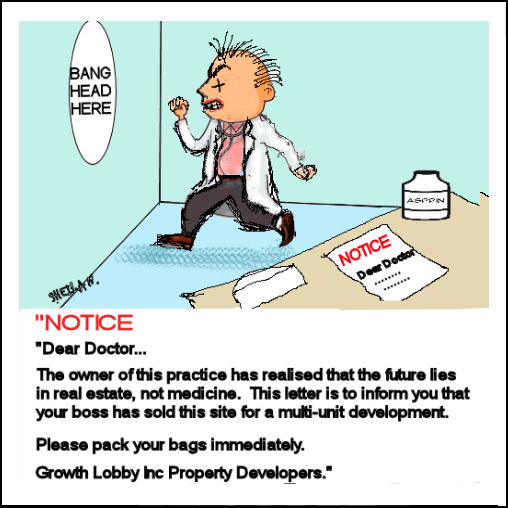
 This bad news is from Whitehorse where some areas are famous for their bush areas and trees and now the government plans destroying a lot of it and people are angry - do add your voice in support. We are supposed to grow more trees not destroy them like vandals.
This bad news is from Whitehorse where some areas are famous for their bush areas and trees and now the government plans destroying a lot of it and people are angry - do add your voice in support. We are supposed to grow more trees not destroy them like vandals. Dear Friends of the Trees in Whitehorse
Dear Friends of the Trees in Whitehorse Here cdb poet, Brolga-Brolga, tells a moral tale of how a number of neighbours clubbed together to speculate on their adjacent land, but when they tried to buy again, they were already priced out of the market. With homage to Barry Humpreys who wrote The Highett Waltz, sung by Dame Edna, and linked to here.
Here cdb poet, Brolga-Brolga, tells a moral tale of how a number of neighbours clubbed together to speculate on their adjacent land, but when they tried to buy again, they were already priced out of the market. With homage to Barry Humpreys who wrote The Highett Waltz, sung by Dame Edna, and linked to here. 

 See inside for a fascinating video account of the history of the law on church land grants in Victoria. A North West Melbourne group is asking for support in their battle to reclaim land for a public park land given by the crown to a Baptist church which no longer wants if for a church. The land now has a value of about $15m and the Baptist organisation wants to sell it off for a dense appartment block. The residents feel that if there is no longer need for a church, the land should revert back to the Crown and citizens and the law seems to clearly support this (see the video). People in North Melbourne are desperately short of open space and need a public park. The church never paid for the land and broke the law many times since the 19th century grant in changing its use. The group fighting for the land to be made public again suggest several ways that you could help them. Editorial comment: There is a long history of churches acquiring land then speculating on it in western history, making them rich and powerful institutions, travelling under cloaks of charity with different tax status. Churches tend to encourage mass immigration and benefit from this situation like other growth lobby members with landbanks.
See inside for a fascinating video account of the history of the law on church land grants in Victoria. A North West Melbourne group is asking for support in their battle to reclaim land for a public park land given by the crown to a Baptist church which no longer wants if for a church. The land now has a value of about $15m and the Baptist organisation wants to sell it off for a dense appartment block. The residents feel that if there is no longer need for a church, the land should revert back to the Crown and citizens and the law seems to clearly support this (see the video). People in North Melbourne are desperately short of open space and need a public park. The church never paid for the land and broke the law many times since the 19th century grant in changing its use. The group fighting for the land to be made public again suggest several ways that you could help them. Editorial comment: There is a long history of churches acquiring land then speculating on it in western history, making them rich and powerful institutions, travelling under cloaks of charity with different tax status. Churches tend to encourage mass immigration and benefit from this situation like other growth lobby members with landbanks. Since 2002 when Melbourne 2030 was quietly introduced by the Bracks’ government (which was intended to be a 30 year plan for Melbourne to make it a more compact city) there have been another 1 million people in Melbourne and 16 new plans introduced in 14 years. The latest is “Plan Melbourne Refresh,” very quickly followed by “Managing Residential Development,” which is a review of the Reformed Residential Zones. You would think that our planners could come up with a long term plan but obviously they are responding to different agendas set by developers. Planning Backlash invites you and your members to a public forum to voice your concerns about the way development is happening in Melbourne. To be held in the Parkview Room, Camberwell Civic Centre, 340 Camberwell Road, Camberwell, Sunday 29th May 2016, 2.30 PM.
Since 2002 when Melbourne 2030 was quietly introduced by the Bracks’ government (which was intended to be a 30 year plan for Melbourne to make it a more compact city) there have been another 1 million people in Melbourne and 16 new plans introduced in 14 years. The latest is “Plan Melbourne Refresh,” very quickly followed by “Managing Residential Development,” which is a review of the Reformed Residential Zones. You would think that our planners could come up with a long term plan but obviously they are responding to different agendas set by developers. Planning Backlash invites you and your members to a public forum to voice your concerns about the way development is happening in Melbourne. To be held in the Parkview Room, Camberwell Civic Centre, 340 Camberwell Road, Camberwell, Sunday 29th May 2016, 2.30 PM.
 Estonian House, West Brunswick, 24th February
Estonian House, West Brunswick, 24th February As previously, there was the muffled threat that this new version of suburban planning, which can only increase occupier density in a municipality with the highest or second highest density in greater Melbourne, was driven by State Government (of a different stripe, but the threat remained the same), and the heavy implication that it might be worse if we did not agree.
As previously, there was the muffled threat that this new version of suburban planning, which can only increase occupier density in a municipality with the highest or second highest density in greater Melbourne, was driven by State Government (of a different stripe, but the threat remained the same), and the heavy implication that it might be worse if we did not agree. I went to the one [meeting] at Pascoe Vale neighbourhood Community Hall. People were hostile. They [Council staff] said they were seeking community input for their submission. One resident said;
I went to the one [meeting] at Pascoe Vale neighbourhood Community Hall. People were hostile. They [Council staff] said they were seeking community input for their submission. One resident said;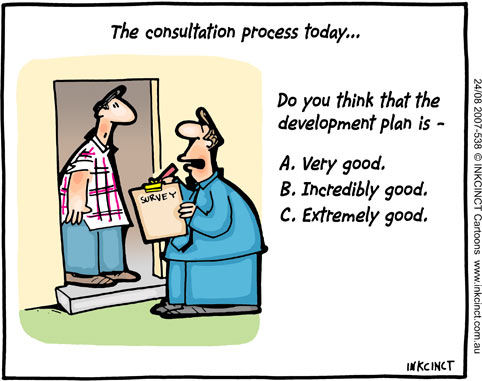
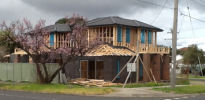 Moreland residents are presently being treated to a new round of ‘consultations’ throughout the municipality, and being indoctrinated by Council staff on the assumed benefits of residential rezoning (radically increased residential densities) and of neighbourhood activity centres as a central feature of the ’20-minute city’. Under this new feudalism, it is expected that residents will access all of their basic material needs and services within a 20 minute walk, bicycle trip, or by public transport. Superficially this may seem a nice idea. On closer scrutiny it is fanciful, so expensive that the necessary additional infrastructure will never be provided, and little more than a pretext for an atrophied Australian business culture dependent upon population growth and capital widening; incapable of building a genuinely modern economy. Selling dirt to China and building a national ponzi economy based on population growth and making each other cappuccinos. Dumb and dumber dressed up as community building and environmental responsibility, but, very politically fashionable – so much so that the left enthusiastically does the economic right’s public relations for it. The Greens on the Moreland Council are a case in point.
Moreland residents are presently being treated to a new round of ‘consultations’ throughout the municipality, and being indoctrinated by Council staff on the assumed benefits of residential rezoning (radically increased residential densities) and of neighbourhood activity centres as a central feature of the ’20-minute city’. Under this new feudalism, it is expected that residents will access all of their basic material needs and services within a 20 minute walk, bicycle trip, or by public transport. Superficially this may seem a nice idea. On closer scrutiny it is fanciful, so expensive that the necessary additional infrastructure will never be provided, and little more than a pretext for an atrophied Australian business culture dependent upon population growth and capital widening; incapable of building a genuinely modern economy. Selling dirt to China and building a national ponzi economy based on population growth and making each other cappuccinos. Dumb and dumber dressed up as community building and environmental responsibility, but, very politically fashionable – so much so that the left enthusiastically does the economic right’s public relations for it. The Greens on the Moreland Council are a case in point.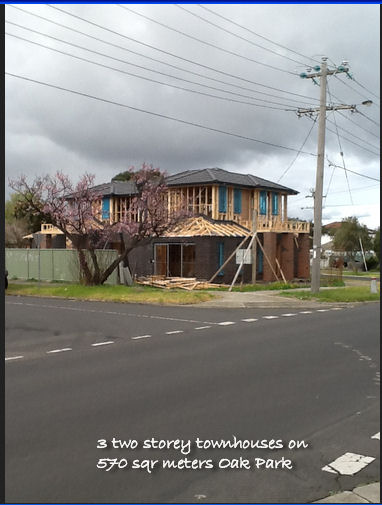
 AD Good morning listeners, time to think about getting up. (I already have). Just a few news items before we move into the program and here’s GH with the traffic report.
AD Good morning listeners, time to think about getting up. (I already have). Just a few news items before we move into the program and here’s GH with the traffic report. Mark Allen from Population Permaculture and Planning locks horns so to speak with West Australian Planning Professor, Professor Newman, over Melbourne's apartment proliferation, in discussion on the Conversation website relating traffic congestion to GDP rather than to population growth, and where the professor has suggested that increasing low cost, low quality, high density appartments would solve housing unaffordability. (If you wish to contribute on The Conversation site, please hit 'newest' on the 'Comments' section to read the latest dialogue at:
Mark Allen from Population Permaculture and Planning locks horns so to speak with West Australian Planning Professor, Professor Newman, over Melbourne's apartment proliferation, in discussion on the Conversation website relating traffic congestion to GDP rather than to population growth, and where the professor has suggested that increasing low cost, low quality, high density appartments would solve housing unaffordability. (If you wish to contribute on The Conversation site, please hit 'newest' on the 'Comments' section to read the latest dialogue at: 

Recent comments